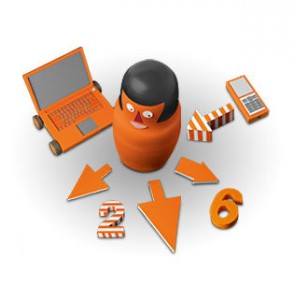 Speakers at the GSMA-mHA Mobile Health Summit, held this week in Capetown, South Africa, focused their talks on growing the emerging mobile healthcare market and making it sustainable, according to a series of reports from the GSMA's Mobile Business Briefing.
Speakers at the GSMA-mHA Mobile Health Summit, held this week in Capetown, South Africa, focused their talks on growing the emerging mobile healthcare market and making it sustainable, according to a series of reports from the GSMA's Mobile Business Briefing.
Pramod Gaur, VP of TeleHealth for UnitedHealth Group, spoke on how sustainable new solutions in the mobile health industry will need to involve support from multiple “stakeholders” and not just the technology sector. Gaur argued that the industry must focus not only on the needs of the creators of mobile health technology, but the “stakeholders” as well. The “stakeholders”, as he defined them, are patients, non-professional caregivers, medical professionals, and the “payer” for services. “What is that going to do to [the provider’s] workflow, how is this enormous amount of data going to affect their practice?” he told the audience. Most focus on success lies with patient response, he added, but the effect on medical professionals’ workflows should also be considered.
Lyse Brillouet, Head of Strategy and Marketing for Orange Healthcare, spoke of the “four steps” for increasing global penetration of mobile health applications and creating “robust business models for mHealth solutions.” Key components include interoperability, standardisation and normalisation, Brillouet said, as well as creating infrastructure in developing markets from large mobile investments. She stressed that consumers must be educated on mobile health options to guarantee an interest in paying for customized solutions.
Misha Kay, Manager at the Global Observatory for eHealth at the World Health Organisation, talked about the necessity of strong evaluations of the effectiveness of mobile health, stating that just twelve percent of survey responders have done a formal evaluation of mHealth work. Lack of widespread adoption lies in conflicting health priorities, and an uncertainly on cost effectiveness of mHealth applications. Kay said that the WHO is developing a site that will focus on global mHealth best practices culled from national and local data, involving cost-benefit analysis, evaluation information, and methodologies.
Finally, a report, which was published by iheed Institute and Dalberg Global Development Advisors ahead of the summit, stated that health education applications are proving to be effective learning tools for healthcare workers. These are apps that deliver reference material, real-time feedback, and up to date industry procedures to workers at a reduced cost when compared to traditional venues for accessing the information. The report stressed the need for stakeholders to work together to create more mHealth applications. These stakeholders include healthcare institutions, academia, content creators, governments, mobile operators, device manufacturers, NGOs, philanthropists, and investors.
At least one mobile operator, however, found that incumbents aren't always keen on working with new entrants.
“Sometimes some people feel we are taking some of their bread and butter," Christian De Faria, senior VP of Commercial and Innovation for South African operator MTN said during his presentation at the event. "When we launched mobile money, the banks came and said ‘guys, you cannot do this.’ When we launched music downloads via the internet, the music industry said ‘guys, don’t touch this, it’s my pie’.”
Read the newsfeed from the GSMA's Mobile Business Briefing here
















